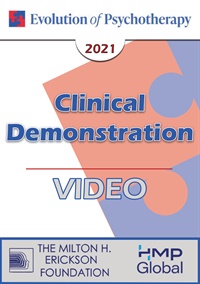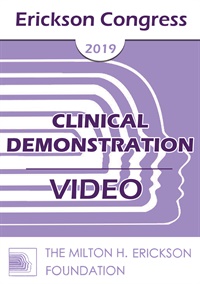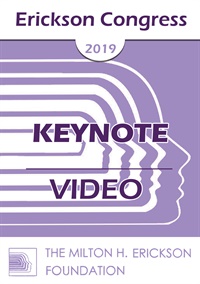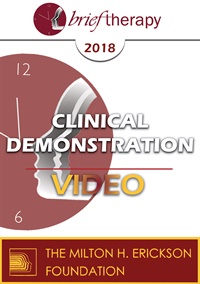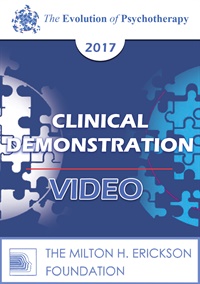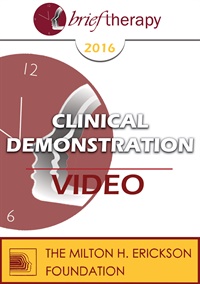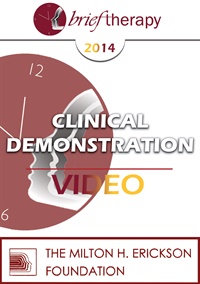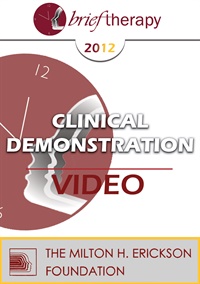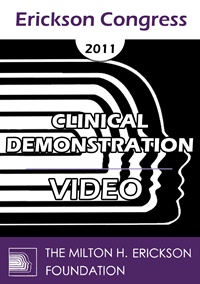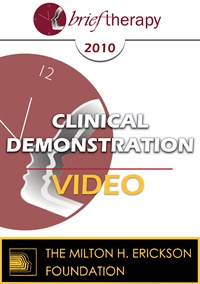- Average Rating:
- Not yet rated
- Topic Areas:
- Clinical Demonstrations | Generative Psychotherapy | Psychotherapy | Art and Creativity
- Categories:
- Evolution of Psychotherapy | Evolution of Psychotherapy 2021
- Faculty:
- Stephen Gilligan, PhD
- Course Levels:
- Master Degree or Higher in Health-Related Field
- Duration:
- 1 hour
- Format:
- Audio and Video
- Original Program Date:
- Dec 02, 2021
- Short Description:
- "This demonstration will show how activating a client's creative process is the key factor in generative psychotherapy. This process follows these steps: (1) Opening a creative safe space (2) Identifying a goal (A positive change or transforming a negative pattern) (3) Identifying and welcoming both obstacles and resources (4) Weaving and integrating the parts into a new "mosaic of self" (5) Orienting to future application of changes. Therapy is successful when clients are able to experientially realize positive life changes. While the identification and transformation of symptoms is important in this regard, the activation of the client's creative capacity to change is even more important. This paper outlines 6 steps in this therapeutic process: (1) opening a mindful field, (2) setting positive intentions, (3) developing and maintaining a creative state, (4) identifying a "storyboard" for achieving goals, (5) transforming negative experiences, and (6) everyday practices. Metho
- Price:
- $59.00 - Base Price
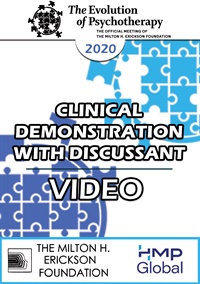
- Average Rating:
- Not yet rated
- Topic Areas:
- Hypnosis | Clinical Demonstrations | Clinical Demonstrations with Discussant | Psychotherapy | Generative Psychotherapy
- Categories:
- Evolution of Psychotherapy | Evolution of Psychotherapy 2020
- Faculty:
- Stephen Gilligan, PhD
- Course Levels:
- Master Degree or Higher in Health-Related Field
- Duration:
- 1 hour 32 minutes
- Format:
- Audio and Video
- Original Program Date:
- Dec 11, 2020
- Short Description:
- Therapy is successful when clients are able to experientially realize positive life changes. While the identification and transformation of symptoms is important in this regard, the activation of the client's creative capacity to change is even more important. This paper outlines 6 steps in this therapeutic process: (1) opening a mindful field, (2) setting positive intentions, (3) developing and maintaining a creative state, (4) identifying a “storyboard” for achieving goals, (5) transforming negative experiences, and (6) everyday practices. Methods and case examples will be given to illuminate this core process.
- Price:
-
Sale is $29.00
price reduced from Base Price - $59.00
- Average Rating:
- Not yet rated
- Topic Areas:
- Clinical Demonstrations | Trance | Generative Psychotherapy
- Categories:
- Erickson Congress | Erickson Congress 2019
- Faculty:
- Stephen Gilligan, PhD
- Course Levels:
- Master Degree or Higher in Health-Related Field
- Duration:
- 1 Hour 3 Minutes
- Format:
- Audio and Video
- Original Program Date:
- Dec 15, 2019
- Short Description:
- This clinical demonstration will explore how the skillful use of therapeutic trance can produce positive change. A six step model will be demonstrated: (1) Opening a positive connection, (2) goal setting, (3) cultivating a relational trance field, (4) including client parts into field, (5) transforming identify patterns, (6) bringing changes into real world.
- Price:
-
Sale is $29.00
price reduced from Base Price - $59.00
- Average Rating:
- Not yet rated
- Topic Areas:
- Clinical Demonstrations | Somatic Experiences | Generative Psychotherapy | Resistance
- Categories:
- Erickson Congress | Erickson Congress 2019
- Faculty:
- Robert Dilts, BA
- Course Levels:
- Master Degree or Higher in Health-Related Field
- Duration:
- 1 Hour
- Format:
- Audio and Video
- Original Program Date:
- Dec 14, 2019
- Short Description:
- This demonstration will show how to apply principles of Generative Change to creatively transform and integrate symptoms that emerge in the form of interference or resistance. By combining somatic modeling with the three positive connections of a generative state, obstacles and resistances can be transformed into a more resourceful expression and brought into alignment with therapeutic goals.
- Price:
-
Sale is $29.00
price reduced from Base Price - $59.00
- Average Rating:
- Not yet rated
- Topic Areas:
- Keynotes | Psychotherapy | Generative Psychotherapy | Art and Creativity | Relationships
- Categories:
- Erickson Congress | Erickson Congress 2019
- Faculty:
- Robert Dilts, BA
- Course Levels:
- Master Degree or Higher in Health-Related Field
- Duration:
- 1 Hour 4 Minutes
- Format:
- Audio and Video
- Original Program Date:
- Dec 13, 2019
- Short Description:
- The core focus in Generative Change is creativity: How do you create a positive relationship with others and yourself—your body, your past, your future, your wounds, and your gifts? To accomplish this, a person’s state of consciousness is the difference that makes the difference. Generative Change work involves building the generative states, for yourself and others, needed to make significant change. It then focuses on how to maintain these states in order to reach meaningful goals and transform challenging obstacles. This presentation will explore how the six steps of Generative Change may be applied to Psychotherapy.
- Price:
-
Sale is $29.00
price reduced from Base Price - $59.00
Credit available - Click Here for more information
- Average Rating:
- Not yet rated
- Topic Areas:
- Clinical Demonstrations | Psychotherapy | Generative Psychotherapy | Art and Creativity | Brief Therapy
- Categories:
- Brief Therapy Conference | Brief Therapy Conference 2018 | Online Continuing Education
- Faculty:
- Stephen Gilligan, PhD
- Course Levels:
- Master Degree or Higher in Health-Related Field
- Duration:
- 57:55
- Format:
- Audio and Video
- Original Program Date:
- Dec 08, 2018
- Short Description:
- This live demonstration will show the 6-step model for generative change: (1) opening a creative space, (2) setting a positive intention, (3) developing a creative state, (4) taking action steps, (5) transforming obstacles, and (6) homework and self-practices.
- Price:
-
Sale is $29.00
price reduced from Base Price - $59.00

- Average Rating:
- Not yet rated
- Topic Areas:
- Workshops | Brief Therapy | Generative Psychotherapy | Psychotherapy | Relationships | Therapist Development
- Categories:
- Brief Therapy Conference | Brief Therapy Conference 2018
- Faculty:
- Robert Dilts, BA
- Duration:
- 2:01:29
- Format:
- Audio Only
- Original Program Date:
- Dec 07, 2018
- Short Description:
- BT18 Workshop 14 - Applying Principles of Generative Coaching to Brief Therapy - Robert Dilts The core focus in Generative Coaching is creativity: How do you create a successful and meaningful work life? How do you create great personal relationships? How do you develop a great relationship with yourself—your body, your past, your future, your wounds, and your gifts? Generative change means creating something beyond what currently exists, whether in personal or professional life. It is not merely a cosmetic change, but a contextual shift that allows new levels of performance. Generative Coaching focuses on how to build the generative states needed to produce change and on how to maintain these states in order transform the obstacles and barriers that will inevitably arise.
- Price:
- $15.00 - Base Price
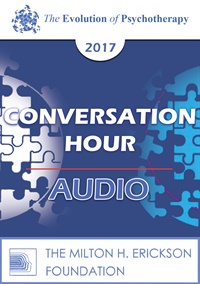
- Average Rating:
- Not yet rated
- Topic Areas:
- Conversation Hours | Generative Psychotherapy | Psychotherapy | Art and Creativity
- Bundle(s):
- Learning Track - EP17 Erickson Download
- Categories:
- Evolution of Psychotherapy | Evolution of Psychotherapy 2017 | Evolution of Psychotherapy Erickson Learning Track
- Faculty:
- Stephen Gilligan, PhD
- Course Levels:
- Master Degree or Higher in Health-Related Field
- Duration:
- 59:52
- Format:
- Audio Only
- Original Program Date:
- Dec 15, 2017
- Short Description:
- Dr. Gilligan will briefly overview his general approach to the creative process of effective psychotherapy, and then open the floor to conversation from participants.
- Price:
- $15.00 - Base Price
Credit available - Click Here for more information
- Average Rating:
- Not yet rated
- Topic Areas:
- Clinical Demonstrations with Discussant | Emotionally Focused Therapy (EFT) | Generative Psychotherapy | Art and Creativity | Goals of the Therapist | Psychotherapy
- Bundle(s):
- Learning Track - EP17 Erickson Stream
- Categories:
- Evolution of Psychotherapy | Evolution of Psychotherapy 2017 | Evolution of Psychotherapy Erickson Learning Track | Online Continuing Education
- Faculty:
- Stephen Gilligan, PhD | Sue Johnson, EdD
- Course Levels:
- Master Degree or Higher in Health-Related Field
- Duration:
- 1:27:23
- Format:
- Audio and Video
- Original Program Date:
- Dec 14, 2017
- Short Description:
- This demonstration will show how activating a client’s creative process is the key factor in generative psychotherapy. This process follows four steps: 1) Identifying a goal (A positive change or transforming a negative pattern), 2) Developing a generative state, 3) Utilizing the generative state to creatively achieve the goal, and 4) Guiding the session changes into real life achievement.
- Price:
- $0.00 - $29.00
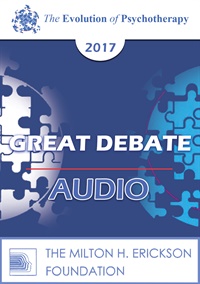
- Average Rating:
- Not yet rated
- Topic Areas:
- Great Debates | Neuro-Linguistic Programming (NLP) | Generative Psychotherapy | Psychotherapy | Relationships
- Categories:
- Evolution of Psychotherapy | Evolution of Psychotherapy 2017
- Faculty:
- Robert Dilts, BA | Steven Hayes, PhD
- Duration:
- 1:25:57
- Format:
- Audio Only
- Original Program Date:
- Dec 14, 2017
- Short Description:
- Generative processes are those that promote innovation, evolution and growth. To “generate” means to create something new. Thus, the core focus in of generative change is creativity: How do you create a successful and meaningful work life? How do you create great personal relationships? How do you develop a great relationship with yourself—your body, your past, your future, your wounds and your gifts? These are the basic challenges in leading an extraordinary life, and the processes of generative change offer a way to succeed at them.
- Price:
- $15.00 - Base Price
- Average Rating:
- Not yet rated
- Topic Areas:
- Psychotherapy | Clinical Demonstrations | Generative Psychotherapy | Unconscious Processes
- Categories:
- Brief Therapy Conference | Brief Therapy Conference 2016
- Faculty:
- Stephen Gilligan, PhD
- Course Levels:
- Master Degree or Higher in Health-Related Field
- Duration:
- 58:40
- Format:
- Audio and Video
- Original Program Date:
- Dec 10, 2016
- Short Description:
- Problems/Symptoms may be viewed as attempts by the creative unconscious to bring transformation and healing. A generative state can allow that transformation to be realized.
- Price:
-
Sale is $29.00
price reduced from Base Price - $59.00
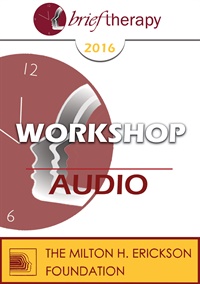
- Average Rating:
- Not yet rated
- Topic Areas:
- Psychotherapy | Workshops | Generative Psychotherapy
- Categories:
- Brief Therapy Conference | Brief Therapy Conference 2016
- Faculty:
- Stephen Gilligan, PhD
- Duration:
- 2:37:44
- Format:
- Audio Only
- Original Program Date:
- Dec 09, 2016
- Short Description:
- Generative psychotherapy is an exploration of how individuals can forge positive, therapeutic responses to life challenges. This invited address concentrates on the three core connections that allow clients to do this: (1) Positive intention and goals (What do you most want to create in your life?); (2) Somatic Centering (Where do you feel the deepest resonance in your body?); and (3) Field Resources (What can most deeply support your path of change?).
- Price:
- $15.00 - Base Price
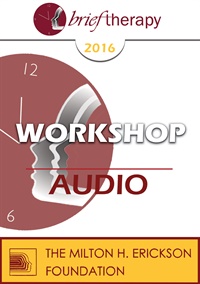
- Average Rating:
- Not yet rated
- Topic Areas:
- Psychotherapy | Workshops | Generative Psychotherapy | Addiction | Anxiety | Depression | Trauma
- Categories:
- Brief Therapy Conference | Brief Therapy Conference 2016
- Faculty:
- Stephen Gilligan, PhD
- Duration:
- 2:36:56
- Format:
- Audio Only
- Original Program Date:
- Dec 09, 2016
- Short Description:
- This workshop presents the Generative Psychotherapy approach to human states of suffering--depression, anxiety, trauma, addiction, etc. This practical and positive approach assumes that each core human experience has equivalent potential to be positive or negative, depending on the human relationship to it; and thus focuses on how problems may be transformed to resources by skillful human connection.
- Price:
- $15.00 - Base Price
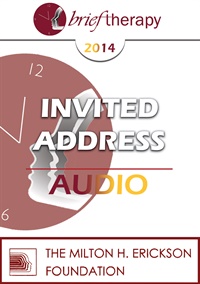
- Average Rating:
- Not yet rated
- Topic Areas:
- Invited Addresses | Brief Therapy | Generative Psychotherapy | Psychotherapy
- Categories:
- Brief Therapy Conference | Brief Therapy Conference 2014
- Faculty:
- Stephen Gilligan, PhD
- Duration:
- 1:02:32
- Format:
- Audio Only
- Original Program Date:
- Dec 14, 2014
- Short Description:
- Generative psychotherapy is an exploration of how individuals can forge positive, therapeutic responses to life challenges. This invited address concentrates on the three core connections that allow clients to do this: (1) Positive intention and goals (What do you most want to create in your life?); (2) Somatic Centering (Where do you feel the deepest resonance in your body?); and (3) Field Resources (What can most deeply support your path of change?).
- Price:
- $15.00 - Base Price
- Average Rating:
- Not yet rated
- Topic Areas:
- Clinical Demonstrations | Psychotherapy | Generative Psychotherapy | Art and Creativity | Brief Therapy | Trance
- Categories:
- Brief Therapy Conference | Brief Therapy Conference 2014
- Faculty:
- Stephen Gilligan, PhD
- Course Levels:
- Master Degree or Higher in Health-Related Field
- Duration:
- 59:41
- Format:
- Audio and Video
- Original Program Date:
- Dec 13, 2014
- Short Description:
- This demonstration will show how problems/symptoms may be viewed as attempts by the creative unconscious to bring transformation and healing, and how the development of a generative trance can allow that transformation to be realized.
- Price:
-
Sale is $29.00
price reduced from Base Price - $59.00
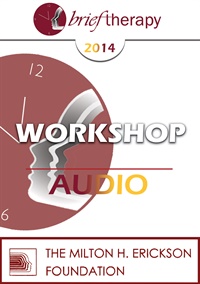
- Average Rating:
- Not yet rated
- Topic Areas:
- Psychotherapy | Workshops | Generative Psychotherapy | Leadership | Therapist Development | Brief Therapy
- Categories:
- Brief Therapy Conference | Brief Therapy Conference 2014
- Faculty:
- Stephen Gilligan, PhD
- Duration:
- 2:02:36
- Format:
- Audio Only
- Original Program Date:
- Dec 12, 2014
- Short Description:
- His workshop will explore how generative psychotherapy can help clients activate the creative consciousness needed to live their lives in positive, fulfilling ways. This process requires the cultivation of self-leadership (and self-COACH) skills, such that a person’s performance self and observer self-work in a mutually respectful, harmonious pattern. The workshop presents some core methods of this approach, including somatic modeling, self-scaling, and engaging the creative unconscious. A demonstration and multiple case examples will illustrate how such methods can allow psychotherapy to be a deeply positive, effective conversation.
- Price:
- $15.00 - Base Price

- Average Rating:
- Not yet rated
- Topic Areas:
- Psychotherapy | Workshops | Generative Psychotherapy | Ericksonian Psychotherapy | Self-Relations | Resources
- Categories:
- Evolution of Psychotherapy | Evolution of Psychotherapy 2013
- Faculty:
- Stephen Gilligan, PhD
- Duration:
- 2 Hours 42 Minutes
- Format:
- Audio Only
- Original Program Date:
- Dec 14, 2013
- Short Description:
- This workshop presents the Ericksonian and Self-Relations Psychotherapy approach to human states of suffering: depression, anxiety, trauma, addiction, etc. This practical and positive approach assumes that each core human experience has equivalent potential to be positive or negative, depending on the human relationship to it; and thus focuses on how problems can be transformed into resources by skillful human connection. This process operates at two levels: (1) developing a generative state (in the therapist, client, and relationship field) and then (2) using specific methods of transforming negative experiences and behaviors.
- Price:
- $15.00 - Base Price
EP13 Clinical Demonstration 07 – Generative Trance and Transformation (Live) – Stephen Gilligan, PhD
- Average Rating:
- Not yet rated
- Topic Areas:
- Clinical Demonstrations | Trance | Generative Psychotherapy | Psychotherapy
- Categories:
- Evolution of Psychotherapy | Evolution of Psychotherapy 2013
- Faculty:
- Stephen Gilligan, PhD
- Course Levels:
- Master Degree or Higher in Health-Related Field
- Duration:
- 51:22
- Format:
- Audio and Video
- Original Program Date:
- Dec 13, 2013
- Short Description:
- This demonstration will show how problems/symptoms may be viewed as attempts by the creative unconscious to bring transformation and healing, and how the development of a generative trance can allow that transformation to be realized.
- Price:
-
Sale is $29.00
price reduced from Base Price - $59.00
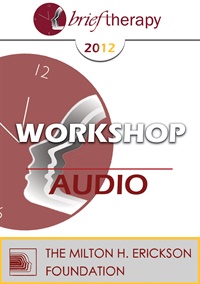
- Average Rating:
- Not yet rated
- Topic Areas:
- Psychotherapy | Workshops | Generative Psychotherapy
- Categories:
- Brief Therapy Conference | Brief Therapy Conference 2012
- Faculty:
- Stephen Gilligan, PhD
- Duration:
- 2:49:06
- Format:
- Audio Only
- Original Program Date:
- Dec 08, 2012
- Short Description:
- BT12 Workshop 36 – Transforming Negative States: A Workshop in Generative Psychotherapy – Stephen Gilligan, PhD This workshop presents the Ericksonian and Self-Relations Psychotherapy approach to human states of suffering: depression, anxiety, trauma, addiction, etc. This practical and positive approach assumes that each core human experience has equivalent potential to be positive or negative, depending on the human relationship to it; and thus focuses on how problems may be transformed to resources by skillful human connection. Multiple techniques and examples for will be given, along with an exercise and demonstration.
- Price:
- $15.00 - Base Price
- Average Rating:
- Not yet rated
- Topic Areas:
- Clinical Demonstrations | Trance | Generative Psychotherapy
- Categories:
- Brief Therapy Conference | Brief Therapy Conference 2012
- Faculty:
- Stephen Gilligan, PhD
- Course Levels:
- Master Degree or Higher in Health-Related Field
- Duration:
- 59:15
- Format:
- Audio and Video
- Original Program Date:
- Dec 07, 2012
- Short Description:
- This demonstration will show how problems/symptoms may be viewed as attempts by the creative unconscious to bring transformation and healing, and how the development of a generative trance can allow that transformation to be realized.
- Price:
-
Sale is $29.00
price reduced from Base Price - $59.00
- Average Rating:
- Not yet rated
- Topic Areas:
- Clinical Demonstrations | Trance | Unconscious Processes | Generative Psychotherapy
- Categories:
- Erickson Congress | Erickson Congress 2011
- Faculty:
- Stephen Gilligan, PhD
- Course Levels:
- Master Degree or Higher in Health-Related Field
- Duration:
- 57:10
- Format:
- Audio and Video
- Original Program Date:
- Dec 10, 2011
- Short Description:
- This demonstration will show how problems/symptoms may be viewed as attempts by the creative unconscious to bring transformation and healing, and how the development of a generative trance can allow that transformation to be realized.
- Price:
-
Sale is $29.00
price reduced from Base Price - $59.00
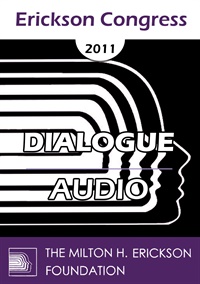
- Average Rating:
- Not yet rated
- Topic Areas:
- Dialogues | Relationships | Generative Psychotherapy
- Categories:
- Erickson Congress | Erickson Congress 2011
- Faculty:
- Robert Dilts, BA | Carol Kershaw, EdD | Dan Short, PhD
- Duration:
- 57:49
- Format:
- Audio Only
- Original Program Date:
- Dec 10, 2011
- Short Description:
- IC11 Dialogue 13 – Generative Relationships – Robert Dilts, Carol Kershaw, EdD, and Dan Short, PhD Generative Relationships Dialogue with Robert Dilts, Carol Kershaw and Dan Short.
- Price:
- $15.00 - Base Price
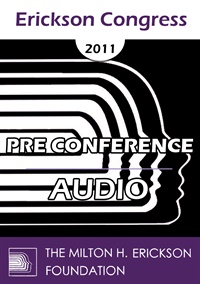
- Average Rating:
- Not yet rated
- Topic Areas:
- Hypnotherapy | Workshops | Pre-Conference Sessions | Generative Psychotherapy | Therapeutic Relationship
- Categories:
- Erickson Congress | Erickson Congress 2011
- Faculty:
- Stephen Gilligan, PhD
- Duration:
- 4:55:50
- Format:
- Audio Only
- Original Program Date:
- Dec 08, 2011
- Short Description:
- This workshop presents an integrative model for generative psychotherapy. The first part details how helpful therapeutic conversations traverse three core axes: (1) a time-line in which each significant life experience contributes towards a positive future; (2) a systemic dimension that integrates different “identity parts”; and (3) a hypnotic dimension that flows between conscious and unconscious processes.
- Price:
- $15.00 - Base Price
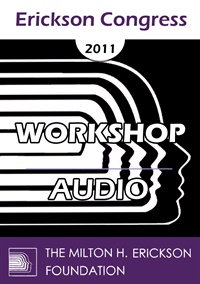
- Average Rating:
- Not yet rated
- Topic Areas:
- Consciousness | Psychotherapy | Workshops | Generative Psychotherapy
- Categories:
- Erickson Congress | Erickson Congress 2011
- Faculty:
- Stephen Gilligan, PhD
- Duration:
- 59 Minutes
- Format:
- Audio Only
- Original Program Date:
- Dec 07, 2011
- Short Description:
- The Generative Self approach emphasizes how the state of consciousness in which an experiential challenge is held determines whether a problem or solution develops. The model identifies three types of mind—Somatic, Cognitive, and Field—and how each mind can be operating at a Primitive, Ego, or Generative Level. We will see how a problem degrades a person’s consciousness level so that change is impossible, and how that low-level state can be improved to a Generative level, so that the problematic experience either spontaneously changes or is more easily engaged. Numerous practical techniques and clinical examples will be offered.
- Price:
- $20.00 - Base Price
- Average Rating:
- Not yet rated
- Topic Areas:
- Clinical Demonstrations | Trance | Utilization | Generative Psychotherapy | Somatic Experiences | Ericksonian Hypnosis and Therapy Techniques | Brief Therapy
- Categories:
- Brief Therapy Conference | Brief Therapy Conference 2010
- Faculty:
- Stephen Gilligan, PhD
- Course Levels:
- Master Degree or Higher in Health-Related Field
- Duration:
- 50:14
- Format:
- Audio and Video
- Original Program Date:
- Dec 11, 2010
- Short Description:
- This session will illustrate the Ericksonian utilization principle, which states that under proper conditions, a problem may easily transform into a solution. The demonstration will show how to develop such conditions via the experience of “generative trance,” such that positive shifts in a person’s somatic, cognitive and field experience lead to positive changes.
- Price:
-
Sale is $29.00
price reduced from Base Price - $59.00


